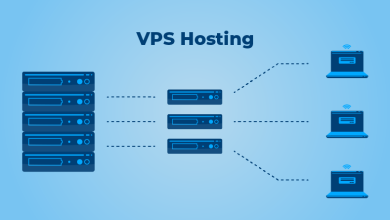What Kind of Security Does a Website Require

Explain Web Security
Web security refers to the safeguards and protocols companies implement to defend themselves against cyber thieves and dangers that use the web channel. Web security is crucial for business continuity and the protection of data, users, and businesses.
What challenges Web Security?
Every organization’s priority should be web security. Along with email, the web is a popular channel for cyberattacks. The web, notably DNS services, is used in 91% of all malware attacks, while email and web together account for 99% of successful breaches.
While the importance of web security cannot be overstated, defending against web security threats is becoming increasingly difficult. IT security departments have significant web security obstacles, from preventing assaults to dealing with limited skills and resources.
Previously, security teams used a variety of on-premises systems to manage email and web security. However, enterprises are increasingly turning to comprehensive email and online security solutions – via integrated, cloud-based technologies that simplify the process and lower the cost of risk reduction. Because attackers frequently utilize email and online channels in tandem, a unified and scalable strategy for safeguarding both is critical.
What Are The Security Threats?
Phishing Attacks
It is one of the oldest methods of deceiving a computer in a network. These attacks happen when attackers send malicious emails deliberately designed to deceive a victim into falling for a scam. These messages are commonly referred to as spam or scam emails. Phishing is similarly difficult to detect before it is opened in an email. These bogus emails include viruses. They spread out across the computer network, searching for sensitive data, such as accounts and personal information.

Malware Attacks
It is a common cyberattack. Malware is malicious software that includes a viral program. As a result, it causes the victim’s PC to run unauthorized software.
The most common sort of malware is Adware. Adware is software that displays unwanted adverts on customers’ smart devices, and Adware is the most common sort of mobile malware.
Ransomware
This type of malware is also very common. Cyber dangers are similar to traditional methods of exploiting individuals online. Ransomware is malicious software that allows unauthorized access to your computer. First, it encrypts your data so it cannot be hacked. Second, decoding is expensive. As a result, cybercriminals usually demand exorbitant fees for their exploitative activities. Cerber acts as an example of how ransomware threats evolve.
Weak Passwords
Cyber dangers are more likely to arise when passwords are weak. It is the result of the user’s carelessness. Weak passwords are the most common, with short, inappropriate names and digits in ascending sequence. A strong password alternates between letters, numbers, symbols, and caps. As a result, weak passwords are vulnerable to cyber crooks, who can exploit your data by quickly guessing the password.
What is the connection between online and email security?
In order to successfully break security protections, attackers usually employ both email and the web. In reality, email and the web are used in 99% of effective malware operations for attack distribution and control. Because attackers effectively employ these two routes in tandem, it makes sense for enterprises to address web and email security with a unified solution that can simplify the protection of both mission-critical information systems.
How to Ensure Web Security?
SSL Certificate
An SSL certificate is a digital certificate that allows for an encrypted connection and aids in verifying a website’s trustworthiness. SSL, or Secure Sockets Layer, is a security technology that creates a secure connection between a web server and a web browser.
On the other hand, businesses and organizations must add SSL certificates to their websites to safeguard online transactions and preserve customer information.
SSL’s primary goal is to secure internet connections by preventing hackers from reading or modifying data exchanged between two machines. SSL tends to guarantee a website when the URL in the address bar has a padlock icon next to it.
Types of SSL Certificates
- Extended Validation certificates (EV SSL)
- Domain Validated certificates (DV SSL)
- Organization Validated certificates (OV SSL)
- Wildcard SSL certificates
- Unified Communications Certificates (UCC)
- Multi-Domain SSL certificates (MDC)

Why Is An SSL Certificate Important?
SSL certificates are required for websites to safeguard user data, validate site ownership, prevent hackers from creating a counterfeit version of the site, and instill trust in users.
As a result, it is critical to protect data privacy whenever a website asks users to sign in, enter personal information such as credit card details, or view private information such as financial or health advantages. SSL certificates help keep online communications private and reassure users that a website is trustworthy and secure for transferring sensitive data.
Enterprises are more likely to need an SSL certificate for an HTTPS web address. SSL is used to encrypt traffic on HTTPS websites since HTTPS is a secure alternative to HTTP.
Who Will Help You Get One?
Website security is a top issue for every well-known firm. It helps assure protection against internal and external intruders who try to influence important information by trick or crook. As a result, using SSL Certificates will provide such security.
However, locating an SSL service provider is a difficult undertaking. Despite this, the services rarely meet the needs of a website.
As a result, it is a top-tier, Venice Web Design reputable SSL certificate service supplier. Its goal is to safeguard communication and protect companies.
For more information, visit this website.




